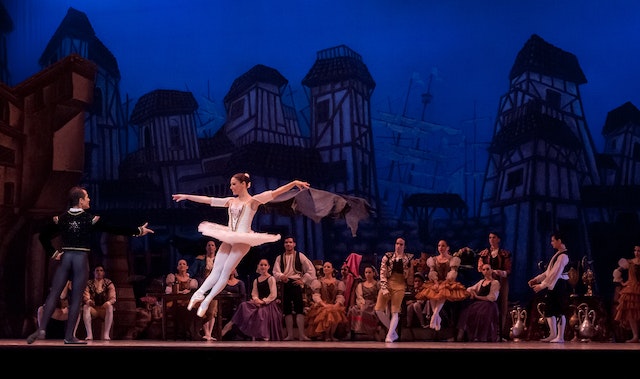Stage performance training is essential for aspiring performers looking to hone their skills and succeed in the competitive world of entertainment. Whether you dream of gracing Broadway stages, starring in Hollywood films, or captivating audiences in concert halls, investing in quality training can make all the difference in your journey to success.
In this comprehensive guide, we will explore the importance of stage performance training, key skills to develop, top programs to consider, and practical tips to enhance your performance abilities.
Why Stage Performance Training Matters
Stage performance training is more than just learning lines and hitting your marks. It is about developing a deep understanding of your craft, mastering techniques that will set you apart from the rest, and cultivating the confidence to shine on stage. Whether you are an actor, dancer, singer, or all of the above, rigorous training can help you unlock your full potential and deliver unforgettable performances.
One of the key benefits of stage performance training is the opportunity to work with experienced professionals who can provide valuable guidance and feedback. Through structured classes, workshops, and rehearsals, you can refine your skills, expand your range, and discover new aspects of your talent. Additionally, training programs often offer networking opportunities that can lead to valuable connections in the industry.
Key Skills to Develop
To excel in stage performance, there are several essential skills that aspiring performers should focus on developing:
- Acting Techniques: Understanding how to analyze a script, embody a character, and convey emotions convincingly is crucial for any performer.
- Voice Training: Strengthening your voice, improving diction, and mastering vocal techniques will enhance your ability to communicate effectively on stage.
- Movement and Dance: Developing physical coordination, flexibility, and grace through dance and movement training can elevate your performances to new heights.
- Stage Presence: Learning how to command the stage, engage with the audience, and project confidence will make you a captivating performer.
- Improvisation: The ability to think on your feet, adapt to unexpected situations, and stay present in the moment is a valuable skill for performers in live settings.
By focusing on these core skills and seeking opportunities to continually improve, you can become a well-rounded performer capable of tackling a variety of roles and genres.
Top Programs for Stage Performance Training
When it comes to choosing a stage performance training program, there are several renowned institutions that stand out for their exceptional training and industry connections. Here are a few top programs to consider:
- Juilliard School: Known for its rigorous acting program and esteemed faculty, Juilliard offers comprehensive training for aspiring performers.
- Royal Academy of Dramatic Art (RADA): Located in London, RADA is renowned for its classical training in acting, voice, and movement.
- Stella Adler Studio of Acting: With a focus on the principles of Stanislavski, Adler’s studio provides a solid foundation for actors looking to refine their craft.
- American Academy of Dramatic Arts (AADA): Offering a conservatory-style approach to acting training, AADA prepares students for careers on stage and screen.
- Yellowbrick Stage Performance Courses: Yellowbrick offers online courses in various aspects of stage performance, providing flexibility for aspiring performers to hone their skills from anywhere.
While these programs are highly respected in the industry, it’s important to research and find the program that best aligns with your goals, learning style, and budget.
Practical Tips for Enhancing Your Performance Abilities
In addition to formal training programs, several practical tips can help aspiring performers enhance their stage performance abilities:
- Practice Regularly: Consistent practice is key to mastering any skill. Set aside time each day to work on monologues, scenes, or dance routines to keep your performance abilities sharp.
- Seek Feedback: Don’t be afraid to seek feedback from instructors, peers, and industry professionals. Constructive criticism can help you identify areas for improvement and grow as a performer.
- Stay Versatile: Explore different genres, styles, and techniques to broaden your skill set and adapt to diverse performance opportunities.
- Stay Healthy: Maintaining physical and mental well-being is essential for performers. Prioritize self-care, proper nutrition, and rest to ensure you have the energy and stamina to deliver strong performances.
- Build Your Portfolio: Create a portfolio showcasing your work, including headshots, performance videos, and a resume highlighting your training and experience. A strong portfolio can help you stand out to casting directors and agents.
By incorporating these tips into your training regimen and staying dedicated to your craft, you can continue to grow and evolve as a performer, setting yourself up for success in the competitive world of stage performance.
Key Takeaways:
- Stage performance training is crucial for aspiring performers to develop their skills and succeed in the entertainment industry.
- Key skills to focus on include acting techniques, voice training, movement and dance, stage presence, and improvisation.
- Consider renowned programs like Juilliard, RADA, Stella Adler, and AADA for quality training in stage performance.
- Practical tips such as regular practice, seeking feedback, staying versatile, maintaining health, and building a strong portfolio can enhance your performance abilities.
- Explore the various career paths available to graduates of stage performance training programs to kickstart your journey in entertainment.
For a comprehensive and flexible approach to advancing your stage performance skills, consider enrolling in Yellowbrick’s online course and certificate program. Yellowbrick offers a range of courses designed to enhance your abilities and prepare you for a successful career in the world of entertainment.








